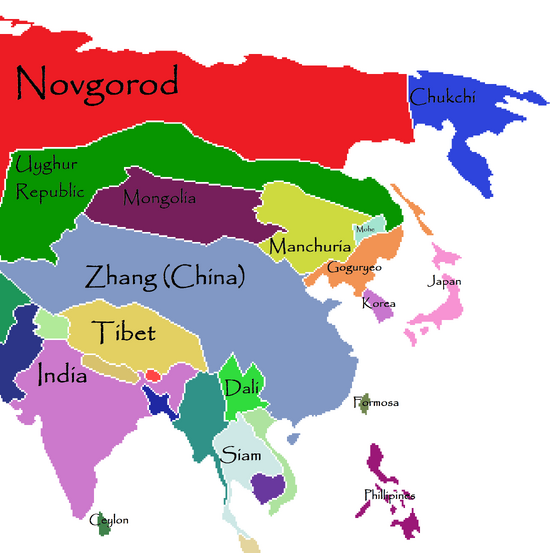The Xuanwu Gate incident was a little-known event in Chinese history that could have changed the course of Chinese history, or even the course of the world's history. The Xuanwu Gate was a palace coup, in which China's to-be emperor Taizong killed two of his siblings, and forcing Emperor Gaozu of Tang to give up his place as emperor.
In this timeline, Li Jiancheng would become emperor of the Tang dynasty after his father's death in 635. Taizong was quite militant, declaring numerous wars during his reign as emperor. Korea, Uyghurstan, and Mongolia have extremely different histories in this timeline.
In terms of dynasties, China's entire history would be changed, as the incident occurred early in the dynasty's history rather than when it was destined to fall. The Mongol Empire would also never rise, as the Mongol rise to power was partly due to the Chinese states at that point. Western Russia would remain occupied by various city-based states, though Novgorod would go on to form a large empire.
Zu Kuang would also go on to discover the Americas after being appointed by China's Shen dynasty, on an attempt to travel to Iberia more quickly. Zheng He would land on the coast of modern-day Peru. He quickly noticed that the people there aren't like anyone from the known world, and began taking notes. He showed it to the emperor. It would turn out these people are the Incas. More expeditions would be held, and the Chinese and Incas would establish trade relations. Upon the arrival of Francisco Pizarro, the Chinese navy would be sent over to South America to defend the Incas.
Word of the New World wouldn't get around to Europe, as the Chinese wouldn't tell any foreigners about the continent. It would be unknown to Europe's general public until after Christopher Columbus's voyages.

